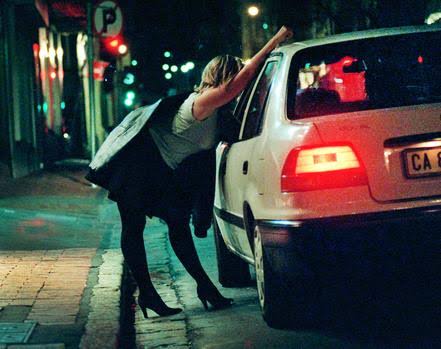News
The R60 Billion Question: South Africa’s High Court Grapples with the Future of Sex Work

The R60 Billion Question: South Africa’s High Court Grapples with the Future of Sex Work
For over 150,000 South Africans, the law isn’t a shieldit’s a threat. Next week, their reality takes center stage in a Cape Town courtroom in a case that could rewrite the rules of one of the country’s largest, yet most hidden, economies.
If you walk past certain streets in any major South African city after dark, you see them. They are often portrayed as shadows, figures on the fringe. But the debate surrounding sex workers is stepping out of the shadows and into the stark light of the Western Cape High Court. This isn’t just a philosophical debate; it’s a high-stakes legal confrontation with profound implications for human rights, public health, and the economy.
A Moratorium and a Moment of Hope
The gravity of the upcoming case was signaled by a stunning move this week. The National Prosecuting Authority (NPA) effectively pressed pause, issuing a moratorium on prosecuting sex workers. It’s a temporary reprieve, but one that activists hail as a monumental shift in tone.
“This moratorium isn’t just a legal technicality; it’s a nod of recognition,” a voice from the Sex Workers Education and Advocacy Taskforce (SWEAT) told us. “It affirms the seriousness of our case and marks a critical step toward finally seeing the people in this industry as rights-bearing citizens.”
The case, brought by SWEAT, argues that the current lawswhich criminalize everything from selling sex to loitering for that purposeare unconstitutional. They force workers into the shadows, making them vulnerable to violence and preventing them from seeking help from police or healthcare services.
The Two Sides of the Coin
The courtroom will become a battleground of ideologies.
On one side stands a coalition including heavyweights like Amnesty International and Human Rights Watch. They argue that decriminalization is a fundamental human rights issue. The law, they say, doesn’t eradicate sex work; it just makes it more dangerous, denying workers justice, safety, and dignity.
Adding significant weight to their argument is an unlikely ally: the Department of Justice itself. In a surprising turn, the department has stated its support for decriminalization and has asked the court for time to allow Parliament to change the law properly.
On the other side are groups like Cause for Justice (CFJ), who are stepping in to argue for keeping the status quo. Their argument is a moral one. A CFJ spokesperson framed it as a battle for human dignity, stating that prostitution “reduces human beings to commercial sex objects… It violates their personhood and equal dignity as members of the human family.”
They point to harrowing research showing that 70% of South African sex workers experienced sexual violence in the past yeara statistic everyone agrees is a national disgrace, even as they disagree fiercely on the solution.
The Staggering Scale of the Shadow Economy
Beyond the moral and legal arguments lies an economic reality that can’t be ignored. This isn’t a small, niche industry.
Sex work is one of South Africa’s largest illicit economies, valued at a staggering R60 billion a year. To put that in perspective, it out-earns Gauteng’s entire tourism sector (R41 billion) and the burgeoning legal cannabis market (R31 billion).
It’s an industry built on the labor of an estimated 153,000 people. The average worker enters the trade at 24 and spends about 12 years in it. The financial disparity is vast. While a high-end escort in Johannesburg might command R30,000 for a night, a street-based worker earns a fraction of that. Yet, on average, workers take home around R30,000 monthlya sum that, if taxed, could contribute an estimated R8.4 billion to the national fiscus annually, enough to fund the education of nearly 380,000 pupils.
Beyond the Courtroom: A Nation’s Conscience
The conversation has spilled onto social media and into dinner table debates across Mzansi. On Twitter, hashtags like #DecrimSA fuel heated discussions, with many users sharing stories of vulnerability and arguing for the right to safety and bodily autonomy. Others voice deep concerns, echoing CFJ’s fears that normalization could lead to further exploitation.
The question South Africa must answer is complex: Is the goal to eliminate a profession many find morally objectionable, or is it to manage it in a way that prioritizes the safety, health, and economic reality of the people in it?
The gavel in Cape Town will signal a legal turning point. But the true judgmenta societal one on compassion, pragmatism, and justicewill be deliberated long after the court adjourns.
{Source: TheCitizen}
Follow Joburg ETC on Facebook, Twitter , TikTok and Instagram
For more News in Johannesburg, visit joburgetc.com



























